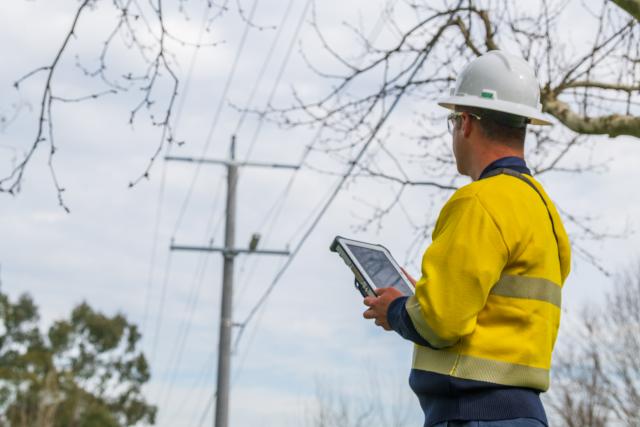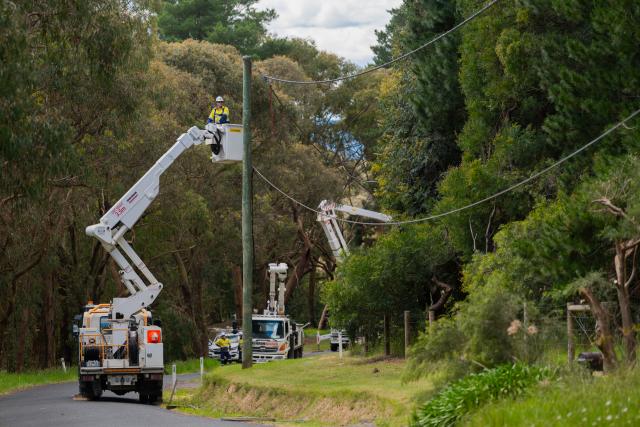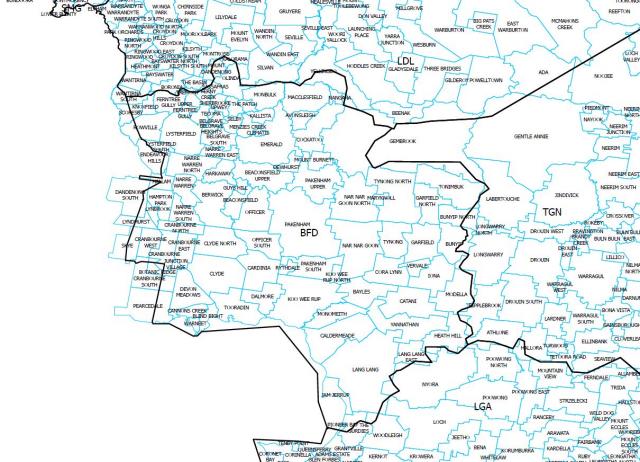
Victorians are being urged to prepare for an early start to the fire season and potential power outages this summer.
The recently released Australian Seasonal Bushfire Outlook warned there was a high chance of an early start to the fire season in Victoria this year, and fires in the Gippsland region earlier this month attest to that.
The Australian Energy Market Operator has also warned that there is increased risk of power outages this summer due to higher than usual electricity demand.
AusNet’s Executive General Manager Network Operations and Safety, Prue Crawford-Flett, said energy reliability is a key focus for AusNet, with preparations for the upcoming summer well underway.
This year, for the region that spans from Ferntree Gully to Warneet to Bunyip we’ve inspected 13,982 power poles from the ground and via helicopter. These inspections resulted in proactive maintenance on 1,384 of these poles.
“Additionally, in this area we assessed 25,071 spans, which is the area between two power poles, for overgrown vegetation and cleared 10,313 spans as a result. This work is part of our commitment to improve safety and reliability ahead of the bushfire season,” said Ms Crawford-Flett.
“We invested $52.7 million this year on vegetation management programs to ensure the network is well maintained,” said Ms Crawford-Flett.
AusNet’s electricity distribution network covers 80,000 square kilometres, which consists of 45,985 kilometres of overhead powerlines, 7,908 kilometres of underground cables, 417,145 power poles and 90,000 streetlights.
This year marks the completion of AusNet’s Rapid Earth Fault Current Limiter (REFCL) program as part of the Victorian Government’s Powerline Bushfire Safety program.
“REFCL’s operate like a safety switch, rapidly cutting power to fallen or damaged powerlines before a fire can start, reducing the risk of bushfires in our communities.
“Our REFCL’s have been built and tested over seven years and have detected a number of faults since 2018, potentially avoiding fires from starting,” Ms Crawford-Flett added.
AusNet will continue to prepare for Victoria’s energy future by investing in projects that increase network capacity, improve reliability, introduce more renewable energy into the network and protect our communities from bushfires.
Preparing for power outages
It’s important to be power prepared and know what to do before, during and after a power outage. Life support customers should have an up-to-date emergency plan with their medical practitioner and be ready to use it during an outage. Our life support priority line is open 24 hours a day, seven days a week on 1800 818 832.
Don’t wait for the emergency to have a plan. You should know your risk and have a plan in place for power outages, bushfires, storms and flash flooding.
Make sure you have a plan ready to go if the power goes out. The tips below will help reduce the impacts on you and your family and keep you safe.
Here are some tips to help you prepare.
Before an outage
• Make sure you have an emergency management plan know what you need to do in the event of an emergency.
• Put together an emergency kit in an easy to access place and let everyone know where it is. As a start you should have battery operated devices such as a radio to receive important information in the event of an outage and a torch. Make sure you keep spare batteries in there too.
• Check to make sure that your medical supplies are fully stocked.
• Make sure you can open your garage or fence manually so you can leave your home if the power goes out.
• Make sure your phone is fully charged. Remember, some phones only work with electricity.
• If you have an electric water pump, stock up on bottled water.
• If you have a private overhead electric line on your property, ensure its clear of vegetation. Contact a registered electrician to repair damaged poles, or a certified tree clearer to remove unwanted vegetation.
If you are a life support customer:
• If you require oxygen, make sure the cylinders are filled and working.
• See if you can visit a friend, family member or hospital when the power is out.
• Ask a neighbour to check on you during the outage.
• Keep all important phone numbers handy for example your doctor, the nearest hospital, the local taxi service, and AusNet’s emergency number 13 17 99.
For further tips on how to prepare for power outages go to: www.ausnetservices.com.au/powerprepared and for updates on current outages, go to AusNet’s outage tracker at www.outagetracker.com.au.








